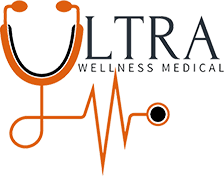Many years ago, I first became interested in the gut microbiome when I read an article associating a poorly diversified gut microbiome to weight gain and obesity.
In the article, it was noted that there is “compelling evidence for an important role of the gut microbiota in the development and perpetuation of obesity.” We are now seeing studies that indicate these bacteria also play roles in a person's risk of cancer, how they recover from infections like COVID, and in mood disorders like anxiety and depression.
The next logical question is what is the gut microbiome and how can I improve mine?
The Microbes or Microbiota in your gut consist primarily of bacteria, fungi, yeast, and viruses. The term microbiome refers to the organisms that make their home in your intestines.
Your gut microbiome starts to develop as soon as you are born, initially populating with a wide diverse of organisms from the birth canal, breast milk and continuing on with everything we are exposed to from healthy organisms while nursing (breast milk also has bacteria) to everything the baby touches or eats externally.
In a symbiotic relationship, the microbiota plays an important role in your overall well being. This well established between mammals and the microbiota contributes directly to gut related manifestations (bloating, gas, diarrhea, constipation, acid reflux, malabsorption of nutrients and indirect, systemic effects (joint pains, fatigue, brain fog, acne, rosacea, mood disorders, weight gain just to name a few). We often see these effects clinically on a daily basis, but this is becoming even more evident in main stream medicine research. Good microbiota are associated with improving the intestinal wall lining, helping with absorption of nutrients, minerals, and in the synthesis of vitamins among many other important functions. An imbalance in the "good" or the "bad" organisms seem to increase risk of long-term heath issues.
Your diet is the one thing that can affect your gut microbiome and have lasting, longterm positive effects if you are consistent in your eating a whole foods diet. Certain medications (antibiotics, acid reducers), poor diet (the so called “Standard American Diet,”gluten, dairy etc), stress, toxins (organophosphates)) among other causes can prevent beneficial bacteria from flourishing and cause an imbalance in our GI system. Below are some of the top food items that can help support a healthy gut microbiome include:
Increase your intake of prebiotic foods:
- Prebiotic foods are what your microbes will be eating.
- Foods naturally high in fiber like vegetables, fruit, whole grains, and legumes are naturally high prebiotics foods.
How to incorporate prebiotic foods into your diet:
- Eat a daily salad incorporating Organic Spring salad mix (Arugula, red leaf lettuce, spinach, radicchio, dandelion, kale), tomatoes, onions, olives, beans with a digestive happy ginger dressing.
- Roasted veggies such as artichokes, sweet potato, yellow and red beets, onions.
Eat probiotic rich food:
- Fermented veggies - green and red cabbage, carrots, cucumber, celery, onions, garlic, ginger, peppers, radishes.
- Kimchi with spicy cabbage, carrots, onions
- Homemade fermented pickles
- Non-dairy based Yogurt or Kefir
- Kombucha fermented black or green tea drink (watch the sugar content)
- Tempeh
Limit or avoid processed foods, foods high in added sugar, artificial sweeteners, and trans fats. We should all try to limit our intake of foods that come prepared in a box or bag and shop mostly the outside of grocery store isles.
Limit or avoid foods that you have sensitivity to such as gluten or dairy. Keeping a food diary will really help in finding your food sensitivity. If you have bloating eating certain foods then best to stay away from them.
Take antibiotics, acid reducers, NSAIDS (non steroidal anti-inflammatory drugs) only when needed. While on antibiotics be extra vigilant about taking probiotics nightly on an empty stomach.


